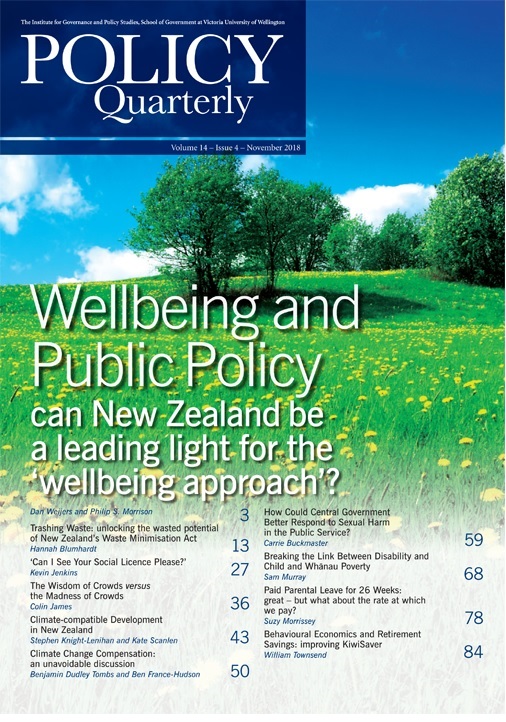Wellbeing and Public Policy
Can New Zealand be a leading light for the wellbeing approach?
DOI:
https://doi.org/10.26686/pq.v14i4.5144Keywords:
wellbeing, happiness, measurement, representation, engagement, Living Standards FrameworkAbstract
Delegates left the Third International Conference on Wellbeing and Public Policy with great expectations following three days of inspirational addresses by some of the world’s most prominent thinkers and policymakers. In this article we ask: what is required for a wellbeing approach to public expenditure to be successfully implemented and sustained? The wellbeing approach arose out of concerns about whether the current suite of measures used by policymakers provides sufficient information on the full range of contributors to or components of the good life. Sometimes divided on what wellbeing is and how to measure it, proponents of the wellbeing approach agree that the ultimate goal of public policy should be to improve wellbeing for all citizens. In order for this wellbeing approach to be successful, we believe it must address three main challenges: measurement, representation and engagement. We must be clear about how wellbeing will be measured, whose wellbeing we will assess, and the extent to which all New Zealanders are represented in the conversations that will determine the first two issues.
Downloads
Downloads
Published
Issue
Section
License
Permission: In the interest of promoting debate and wider dissemination, the IGPS encourages use of all or part of the articles appearing in PQ, where there is no element of commercial gain. Appropriate acknowledgement of both author and source should be made in all cases. Please direct requests for permission to reprint articles from this publication to Policy-Quarterly@vuw.ac.nz.



